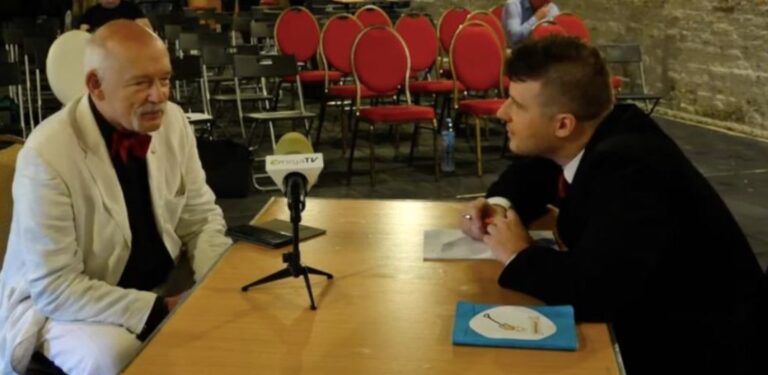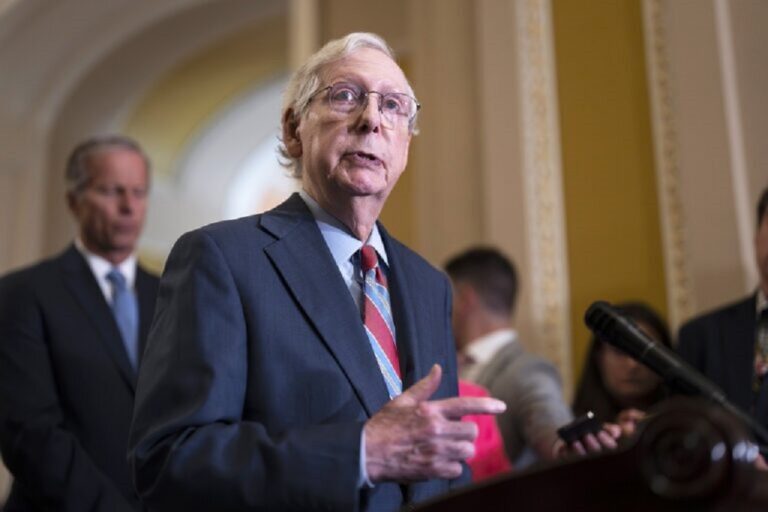What Happened To Spiro Agnew? Scandal And Case Details

Many people have questions about the 39th vice president of the United States, due to his involvement in a scandal. People often ask, “What happened to Spiro Agnew?” as they are curious to learn about the details of the scandal.
Spiro Theodore Agnew, the 39th vice president of the United States, held office from 1969 until his resignation in 1973. His resignation marked him as the second vice president in history to step down, the first being John C. Calhoun in 1832.
Agnew began his political career as an aide to U.S. Representative James Devereux, later serving on the Baltimore County Board of Zoning Appeals in 1957.
He rose through the ranks, becoming Baltimore County Executive in 1962 and then Governor of Maryland in 1966, where he defeated his Democratic opponent George P. Mahoney and independent candidate Hyman A. Pressman.
Also Read: Marjorie Greene Family: Meet Husband Perry Kids And Parents
What Happened To Spiro Agnew?
Agnew, who served as the 39th Vice President of the United States, had a difficult time in the summer of 1973. He was accused of doing bad things like demanding money, taking bribes, and not properly paying his taxes.
The political figure tried to defend himself by saying that the accusations were not true and that a vice president couldn’t be charged with a crime while in office.
However, the legal counsel advising the government stated that a vice president could face charges.

Because of this, more and more people wanted him to quit his job. To make him leave the list of people who could become president, his lawyers secretly talked with a judge and made a deal.
Finally, on October 10, 1973, Theodore resigned from being vice president. He admitted in court that he hadn’t reported $29,500 of income on his tax return. He got a fine of $10,000 and had to behave well for three years without anyone watching him.
Spiro Agnew Scandal
The scandal surrounding Spiro Agnew centered on his involvement in corruption during his time as Baltimore County Executive and Governor of Maryland.
He got into trouble because he was secretly taking money from contractors as a favor for giving them contracts. He kept taking this money even when he became vice president.
This problem was not the same as the Watergate problem that happened at the same time. He was not involved in the Watergate issue.
Even though the politician said he didn’t do anything wrong for a long time, he eventually admitted that he didn’t pay his taxes correctly.

He pleaded no contest, which means he didn’t admit guilt but accepted the punishment. As a result, he had to quit his job as vice president.
President Richard Nixon picked Gerald Ford to take his place. After leaving office, he lived a quiet life and didn’t appear in public often.
Spiro Agnew Case Details
The investigation into Spiro’s corruption started in early 1972, when George Beall, the United States Attorney for the District of Maryland, began looking into corruption in Baltimore County.
At first, the political figure’s name came up as a possible target, but Beall didn’t pay much attention because the time limit for prosecuting any wrongdoing during Agnew’s time as county executive had expired.
However, as the investigation went on, evidence came to light that Agnew had been involved in corrupt activities even while he was vice president.
Witnesses, like Lester Matz, who had been making illegal payments to him, were ready to testify against him. In August 1973, the investigation became public knowledge after The Wall Street Journal reported on it.
Theodore strongly denied the accusations, but as the pressure grew, he started negotiating for a plea bargain to avoid going to jail.
On October 10, 1973, he pleaded no contest to one felony charge of not paying taxes for the year 1967. He had to pay a $10,000 fine and be on probation for three years.
The politician wrote a resignation letter to Secretary of State Henry Kissinger, and he also sent a letter to President Nixon, who agreed with the resignation, stating the need to prevent further division and uncertainty.

After resigning, Agnew’s political career came to an end, and he lived a relatively quiet life. He worked as a consultant for foreign businesses, and in his book “Go Quietly…or Else,” published in 1980, he defended his political career and criticized officials from the Nixon administration.
Spiro Agnew persisted in proclaiming his innocence and defending his behavior in his biography and book after being prohibited from practising law by the state of Maryland in 1974.
Also Read: Busisiwe Mkhwebane Husband David Skosana, Children And Net Worth






